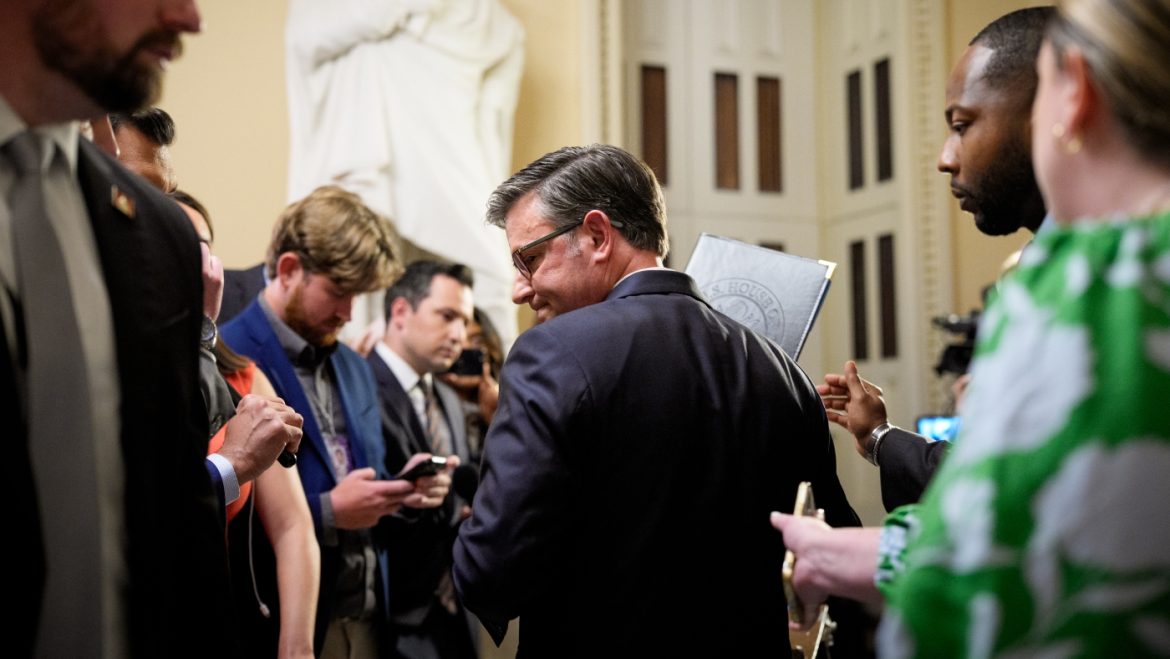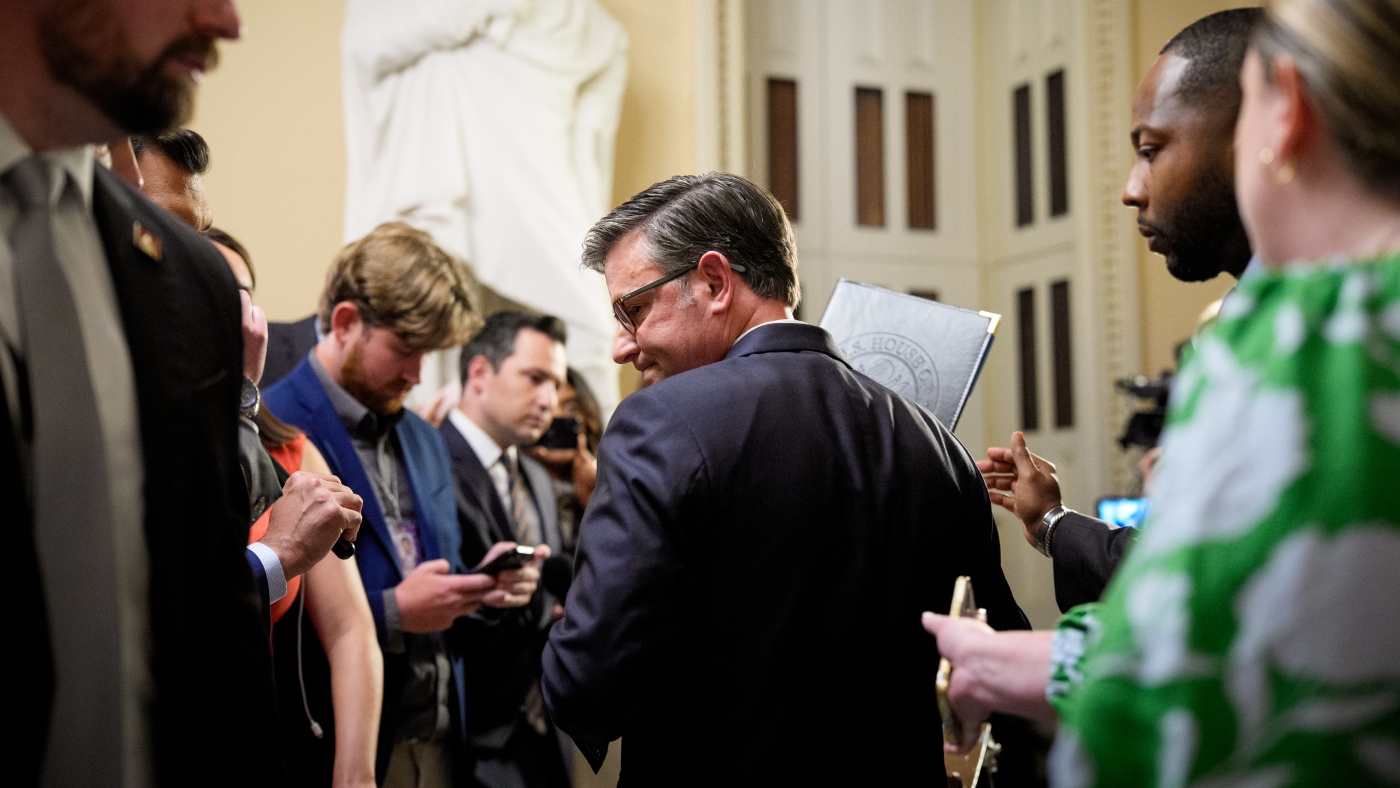The Epstein Files: A Capitol Hill Meltdown
A Recess Born of Conflict
The United States House of Representatives’ abrupt adjournment for its August recess has plunged Capitol Hill into chaos, exposing deep political fractures and reigniting public scrutiny over the Jeffrey Epstein case. House Speaker Mike Johnson’s decision to prematurely end the session was a direct response to mounting bipartisan pressure to release documents tied to the late financier’s controversial legacy. This move, however, has done little to quell the storm, instead intensifying demands for transparency and fueling speculation about what the files might reveal.
The recess was triggered by a bipartisan effort led by Representative Thomas Massie (R) and Representative Ro Khanna (D), who sought to force a vote on releasing the Epstein files. By adjourning early, Speaker Johnson effectively blocked this vote, at least temporarily. His justification—that the Trump administration was already addressing the issue through the courts—has been met with skepticism. Critics argue that this maneuver is a transparent attempt to bury the controversy during the recess, a tactic that has only amplified public distrust.
Diving into the Divide
The Epstein controversy has laid bare a profound schism within the Republican Party. While some GOP members advocate for full disclosure, others appear reluctant, possibly due to concerns about political repercussions or the potential fallout for individuals connected to Epstein. This internal strife has paralyzed the House, hindering its ability to conduct other legislative business.
Democrats have seized on this division, framing the Republican leadership’s actions as an attempt to shield powerful figures potentially implicated in the Epstein case. They are using the issue to rally their base, demanding full disclosure and accountability. The Democrats’ strategy is clear: keep the pressure on Republicans throughout the August recess, ensuring that the Epstein files remain a contentious issue when Congress reconvenes in September.
The Specter of Trump
The Trump administration’s handling of the Epstein files has also come under intense scrutiny. Some Republicans have accused the administration of failing to deliver on promises of transparency, while others suggest that Trump’s critics are being weaponized by Democrats. The administration’s mixed messages and delays in releasing documents have only deepened frustration and distrust.
The Trump administration’s role in this controversy is particularly significant given Epstein’s well-documented connections to high-profile figures, including some within Trump’s inner circle. The administration’s reluctance to fully disclose the files has raised questions about whether it is protecting certain individuals or simply mired in bureaucratic inefficiency.
The Push for Transparency
At the heart of this controversy is a fundamental demand for transparency. The Epstein case, with its allegations of sex trafficking and abuse of minors, has long been shrouded in secrecy. The public, as well as many members of Congress, are demanding to know the full extent of Epstein’s network and the identities of those who may have been involved in his crimes.
Several factors are driving this push for transparency:
– The nature of the crimes: The allegations against Epstein are deeply disturbing, and the public has a right to know the truth about what happened.
– The involvement of powerful figures: Epstein’s connections to prominent politicians, business leaders, and celebrities have raised concerns about potential cover-ups and the abuse of power.
– The desire for justice: Victims of Epstein’s crimes deserve to see justice served, and full transparency is essential to achieving that goal.
The House Oversight Committee’s decision to subpoena Ghislaine Maxwell, Epstein’s longtime associate, to testify before Congress underscores the seriousness of this effort. This move signals a continued commitment to investigating the matter, regardless of the political fallout.
August Recess: A Temporary Respite?
The August recess may provide a temporary respite from the immediate political turmoil surrounding the Epstein files, but it is unlikely to make the issue disappear. Democrats are determined to keep the pressure on Republicans throughout the break, and the public’s demand for transparency is unlikely to diminish.
When Congress returns in September, the battle over the Epstein files will likely resume with renewed intensity. Speaker Johnson will face the challenge of managing the deep divisions within his own party while also responding to the growing pressure from Democrats and the public. The recess may have bought some time, but it has not resolved the underlying issues.
What Lies Ahead
The future of the Epstein files controversy remains uncertain. Several possible scenarios could play out:
– Full disclosure: Under intense pressure, the Trump administration could release all relevant documents related to the Epstein case. This would likely satisfy the demands for transparency but could also have significant political consequences for those implicated.
– Limited release: The administration could release some documents but withhold others, citing privacy concerns or the need to protect ongoing investigations. This would likely satisfy some but would also fuel further speculation and criticism.
– Continued stalemate: The parties could remain deadlocked, with neither side willing to compromise. This would likely prolong the controversy and further erode public trust in Congress.
Each of these scenarios carries its own risks and implications, but one thing is clear: the Epstein files will continue to dominate political discourse in the coming months.
A Crisis of Confidence
The Epstein files controversy has exposed a crisis of confidence in Washington. The public is increasingly skeptical of politicians and institutions, and the handling of this issue has only served to exacerbate those concerns. Whether the Republicans are acting for political reasons or are facing pressure from outside forces, the situation speaks to a larger problem of how the government is perceived by everyday citizens.
This crisis of confidence is not limited to the Epstein case. It reflects a broader disillusionment with the political process, where transparency and accountability often take a backseat to partisan maneuvering. The public’s demand for answers is a testament to its frustration with a system that seems more interested in protecting its own than in serving the people.
Conclusion: The Unfolding Drama
The US House’s early summer recess to avoid voting on the release of the Epstein files marks a significant moment in American politics. More than just a legislative maneuver, it reflects deep-seated issues of transparency, accountability, and the influence of powerful figures. The controversy continues to bubble, promising further revelations and potential fallout.
As Congress navigates this complex landscape, the quest for truth and justice in the Epstein case remains a critical test for the nation’s commitment to transparency and the rule of law. The short-term tactic to delay action may only amplify the long-term repercussions, as the public’s demand for answers will not simply vanish with the summer heat. The unfolding drama surrounding the Epstein files is a stark reminder that in politics, as in life, the truth has a way of surfacing, no matter how hard some may try to bury it.


